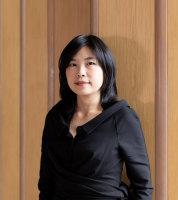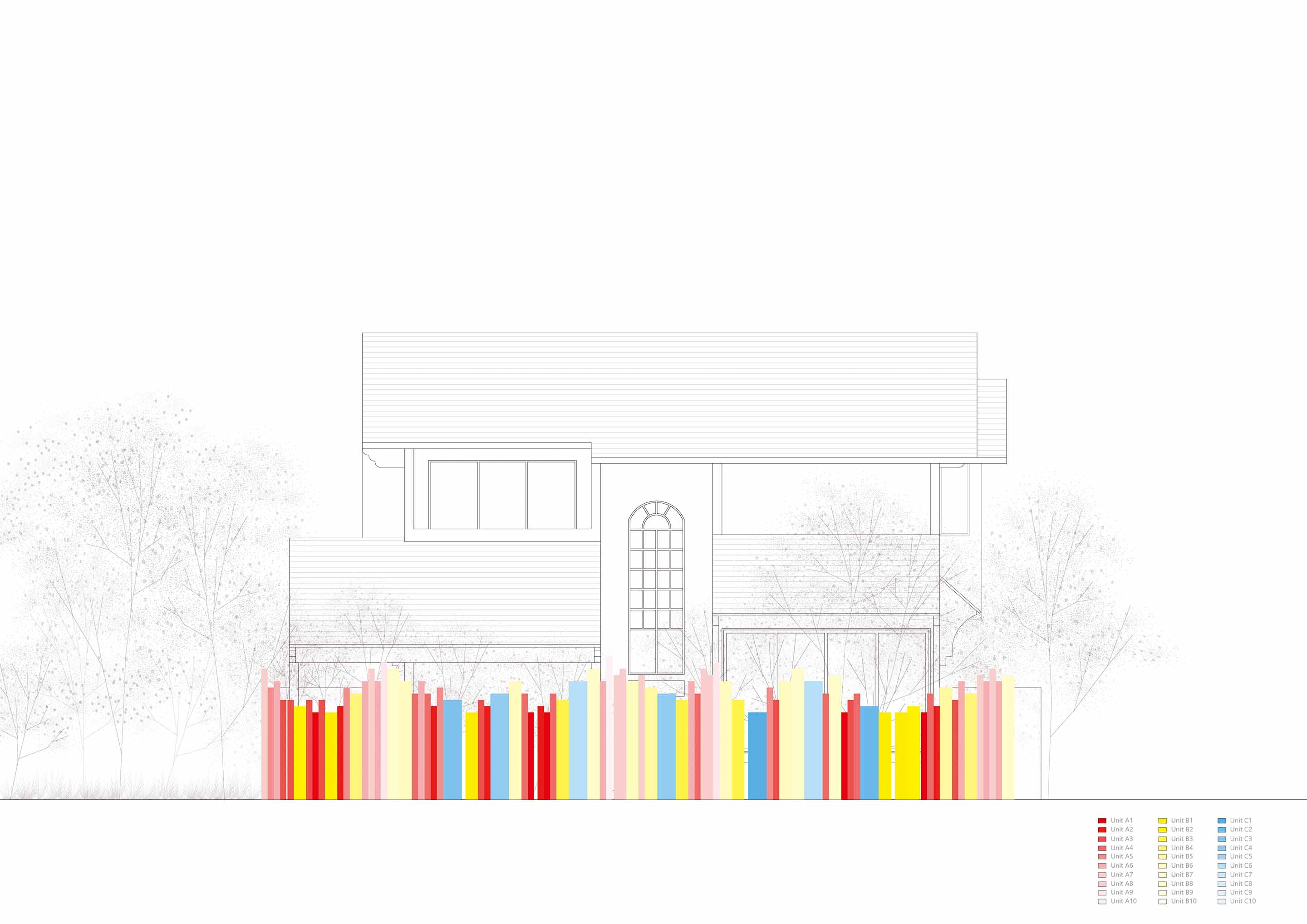
Kulthida SONGKITTIPAKDEE
- Site : https://hasdesignandresearch.com/projects/
- Adresse : 604/186, Soi. Phetkasem 92/1, Phetkasem Road, Bangkhae, Bangkok 10160, Thailand 10160 bangkok
Kulthida SONGKITTIPAKDEE is a prominent Thai architect whose professional practice, academic involvement, and cultural advocacy have meaningfully contributed to the visibility of women in architecture across Asia and beyond. Her work is grounded in a deep commitment to cultural identity, environmental responsibility, and inclusive urban development, demonstrating how architecture can bridge tradition and innovation while responding to the complexities of contemporary life.
As co-founder and principal architect, alongside acclaimed architect Jenchieh Hung, of the Bangkok-based firm Jenchieh Hung + Kulthida Songkittipakdee | HAS Design and Research, she has developed a distinctive architectural language rooted in a deep commitment to cultural identity, environmental responsibility, and inclusive urban development. Her work demonstrates how architecture can bridge tradition and innovation, responding to the complexities of contemporary life by reinterpreting local materials, spaces, and places through projects such as the Museum of Modern Aluminum, Simple Art Museum, Aluminum Grotto and Public Ground, Forest Villa, and Casa de Zanotta. These works have been recognized by numerous international institutions and professional organizations, with notable honors including the INDE. Award Winner from Australia in 2023, the LIT Lighting Design Awards Winner from Switzerland in 2023, and selection for the Wallpaper* Architects’ Directory in the United Kingdom in 2022.
In parallel with her professional achievements, SONGKITTIPAKDEE contributes significantly to academia. She serves as a visiting professor at Chulalongkorn University and Tongji University, and as Dean’s Special Advisor at Kasetsart University. These academic roles reflect her strong commitment to mentorship, particularly in empowering young women architect. Her contributions also extend into writing and research. She is the author of four influential books that reflect her evolving design philosophy. Her first, titled “Arch Life and Rhythm”, published in 2016, recounts her experience as the first Asian architect selected by the Renzo Piano Foundation to collaborate at Renzo Piano’s Paris studio. This was followed by “The Improvised: Phetkasem Artist Studio” in 2021, which explored identity through spatial experimentation. In 2024, she published “from MANufAcTURE to Architecture: Museum of Modern Aluminum”, highlighting architecture’s role as a bridge between nature and humanity. Her most recent work, “Chameleon Architecture: Shifting / Adapting / Evolving”, released in 2025, explores contemporary research and the fluid nature of design practice in a rapidly changing world.
In 2024, she was appointed chairwoman of Thailand’s largest architectural exposition, organized by the Association of Siamese Architects Under Royal Patronage (ASA). In this national role, she became a role model in the architectural field, actively encouraging women architects in leadership. SONGKITTIPAKDEE holds a Bachelor of Architecture with honors from Chulalongkorn University and a Master of Urban Design from the École Nationale Supérieure d’Architecture de Paris-La Villette (ENSAPLV), bringing together perspectives from Asia and Europe. Beyond the physical realm, she is a passionate mentor and advocate, committed to amplifying Thai voices on the global stage. Her work continues to inspire a new generation of architects to embrace cultural depth, social responsibility, and global engagement through design and research.
|
InJoy Snow Hotel Bangkok
InJoy Snow Hotel Bangkok comes from a beautiful background. The owner is a Thai-French who has lived in Paris for many years. She loves the climate and geography of France and looks forward to building a hotel in Bangkok that feels like being in a French snow scene by using the idea of sustainability to maximize the restoration of natural elements in architecture. Hung And Songkittipakdee (HAS) carries on the Thai-French owner's expectations of nature. The design uses the unique approach "Thai Snow" to connect the entire architectural space and landscape field, and combines the microclimate characteristics of the site to create a place that is free from the cluttered city and a sanctuary for the soul.
When visitors approach the architecture, the design features continuous folding perforated aluminum panels that cleverly isolate the external cluttered environment while maximizing the opening numbers of perforated panels, visually presenting a hazy architectural beauty reminiscent of natural morning fog. Hundreds of undulating perforated aluminum panels not only add human scale to Bangkok's street level, but also filter excess sunlight and introduce local monsoons, creating a refreshing and pleasant atmosphere for the interior space.
The continuous folding perforated aluminum panels on the facade are transformed into soft and swaying threads in the foyer, cleverly transitioning between inside and outside spaces, and visually creating a perception reminiscent of natural snowflakes. Nearly a thousand undulating threads not only connect the upper and lower floors in the vertical direction, but also separate and link various spaces in the horizontal direction. The effects of the rich and uncertain threads become a highlight of the experience.
In each guest room, acclaimed architects Jenchieh Hung and Kulthida Songkittipakdee from HAS Design and Research
employs a variety of fabric densities to achieve varying visual permeability in response to natural sunlight. To maximize the "Seasonal Room" concept, the moveable fabric not only separates static and dynamic spaces, but also opens and closes based on weather. The local stone and plants create a unique landscape experience, and a mist SPA is hidden in the moveable light-transmitting fabrics at the end of the bamboo forest.
InJoy Snow Hotel Bangkok takes sustainability as its philosophy, and the result is a distinctive new vernacular architecture. The perforated aluminum panels, which can introduce natural wind convection from the outside. The threads, which can block the western sun while maintaining visual transparency, and the movable fabric allows for a variety of guest room layouts. The renovating building not only provides a respite from Bangkok's dense urban environment, but its snow-ness concept contrasts with the surrounding environment, bringing visitors spiritual tranquility and ritual.
|












